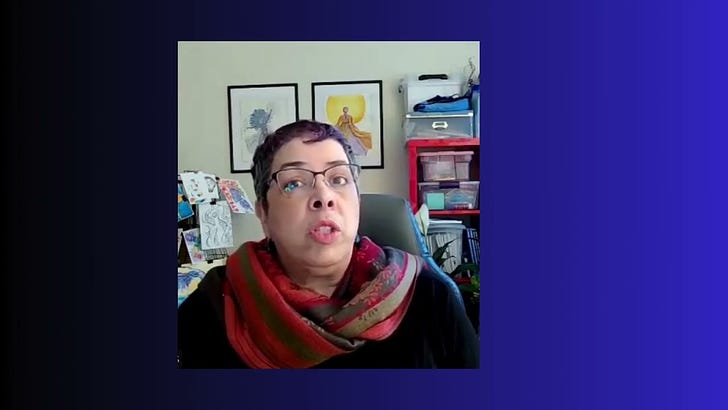Over the last few years, I’ve discovered a whole gaggle of questions in education that circle endlessly, with no satisfying or even useful answers. They show up pretty often in my work, usually with an almost palpable sense of anger and frustration. This untended anger and frustration is how educational trauma is endlessly replicated, so I’m exploring them from a trauma-responsive perspective.
I’ve come to the conclusion that we’re asking the wrong questions.
I think this happens because the question behind the question is very often “why won’t they do what I want them to do?” or some variation on the theme of obedience. If we’re interested in learning, and reducing educational harm, what happens when we ask questions that might help us learn something about ourselves, the moment, and our students?
I’m putting together a list of these questions, with two versions of each question. The first is the actual question I hear. The second is how I reframe the question from a “what can I learn?” perspective. The list is organized only by how I chose to answer the questions, and I’ll link an expanded article to the question as they’re published.
If you’d rather hear me say the thing instead of reading the thing, here’s a delightful home video 😎
If you have a question you want reframed, drop it in the comments and I’ll give it a run!
How do I tell the difference between educational trauma and other types of trauma?
Reframed: “What information about lived traumatic experience do teachers truly need to support students?
How do I get students to engage with uncomfortable topics?
Reframed: “How do we redefine rigor to center learning with joy (instead of punishment for perceived failure)?
How do I motivate students to learn?
Reframed: “How do I help my students (re)discover themselves as capable, confident learners? How do I model joyful learning and curiosity for them?”
What can I do to help students heal?
Reframed: “How can we stop replicating educational trauma? How is it possible to teach and learn with joy in the face of enormous harm?”
What do I do when students are triggered?
Reframed: “How do I respond when students are upset or activated? How do I increase and strengthen my own capacity to be present in the face of others’ pain and anger?”
What about classroom management and discipline?
Reframed: “How do teachers examine their relationship to power? How does our power show up in moments of tension? Why is it so important for teachers to understand this relationship?”




